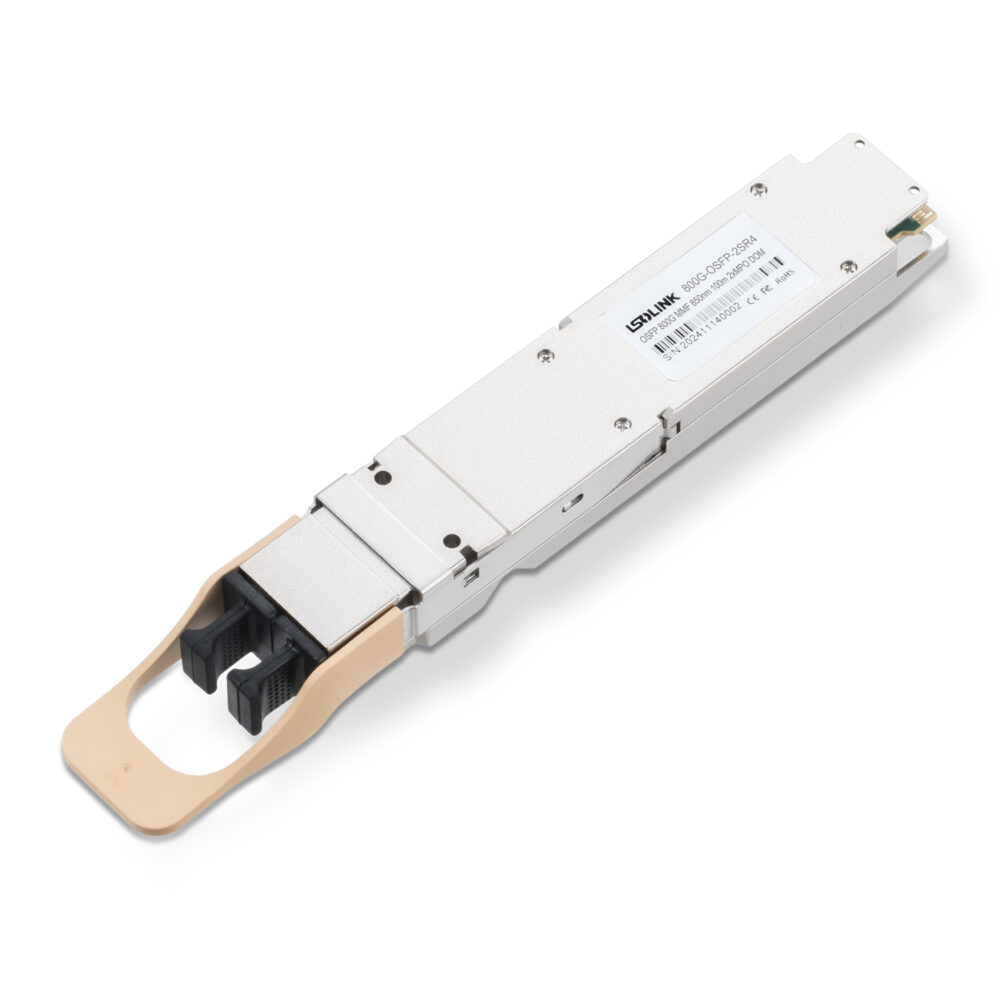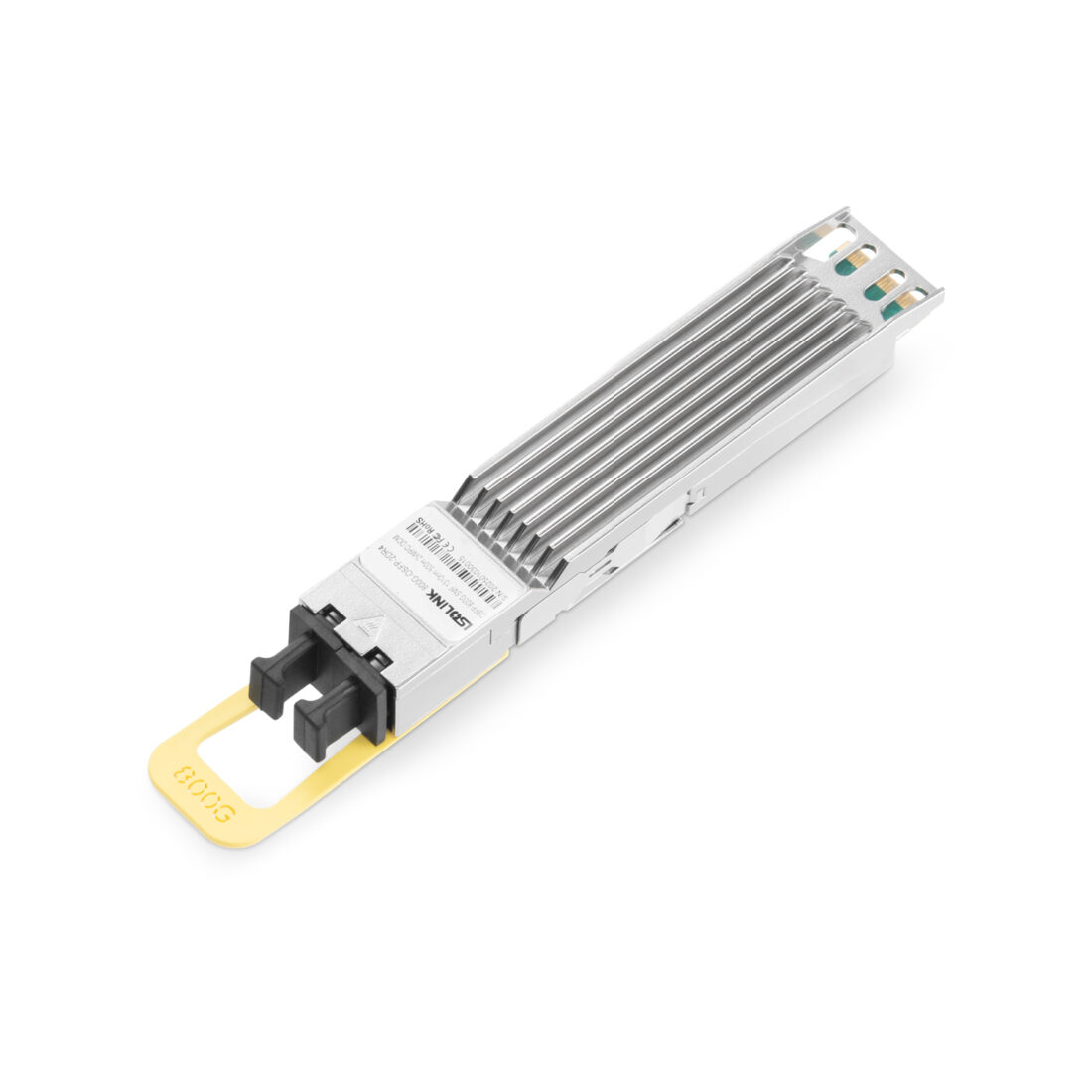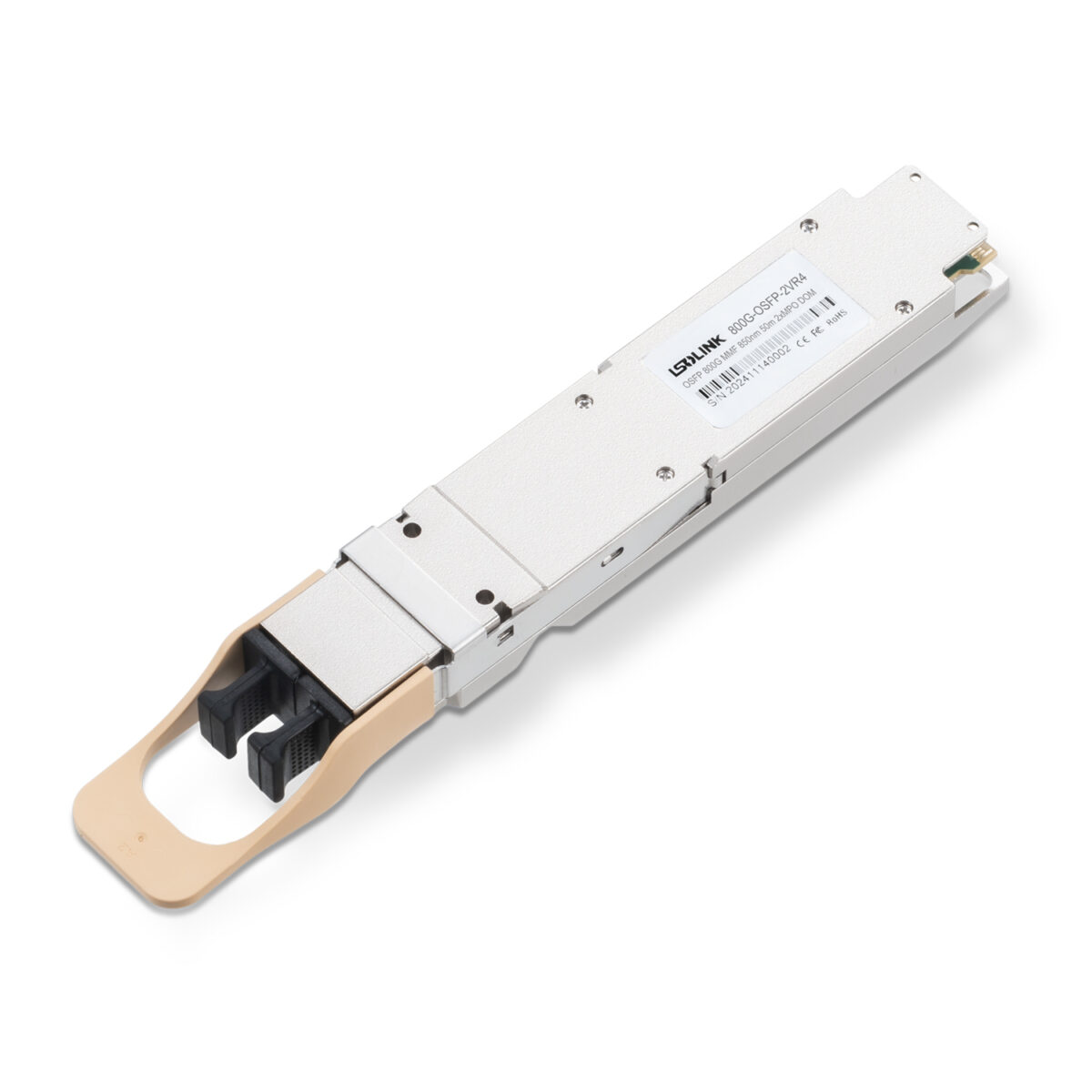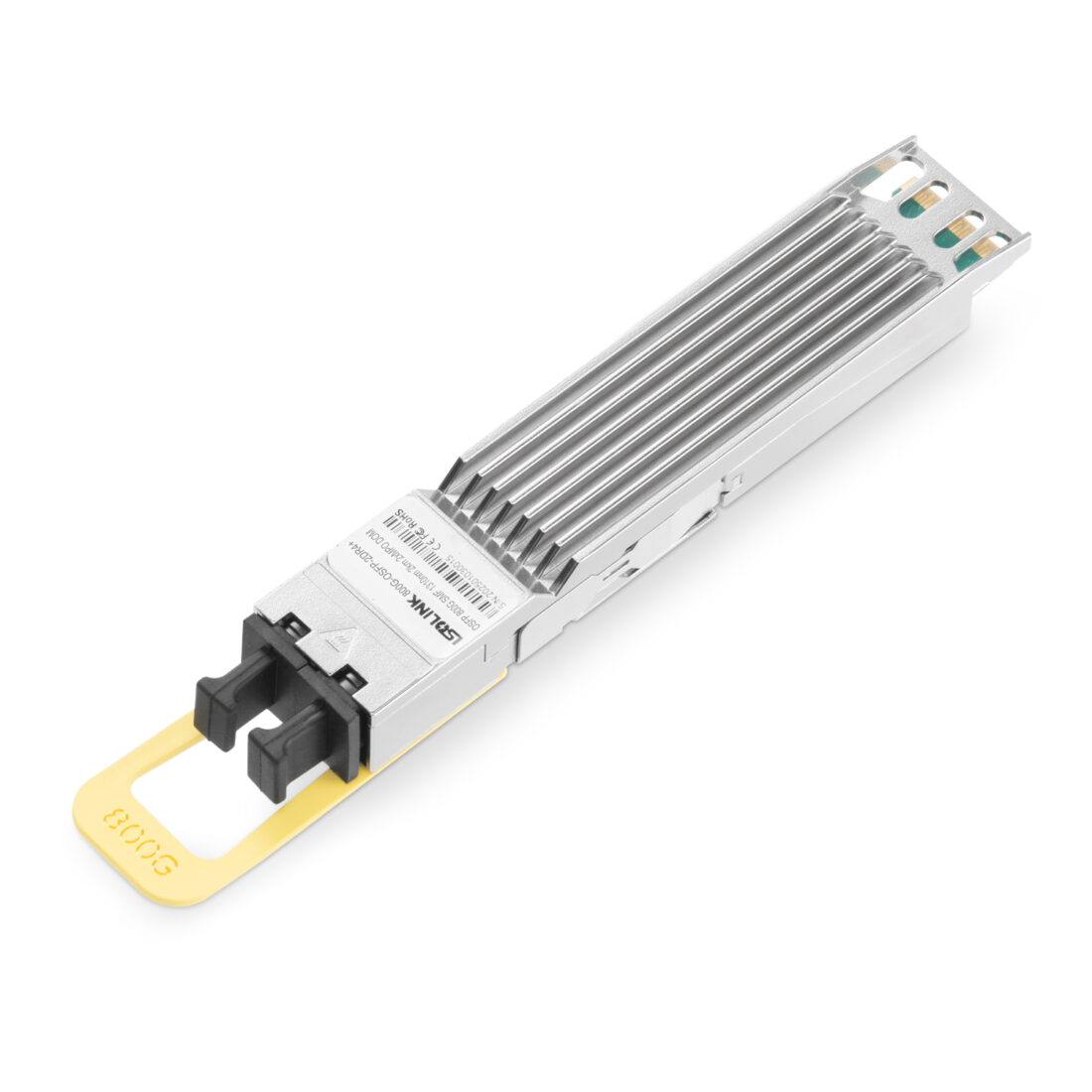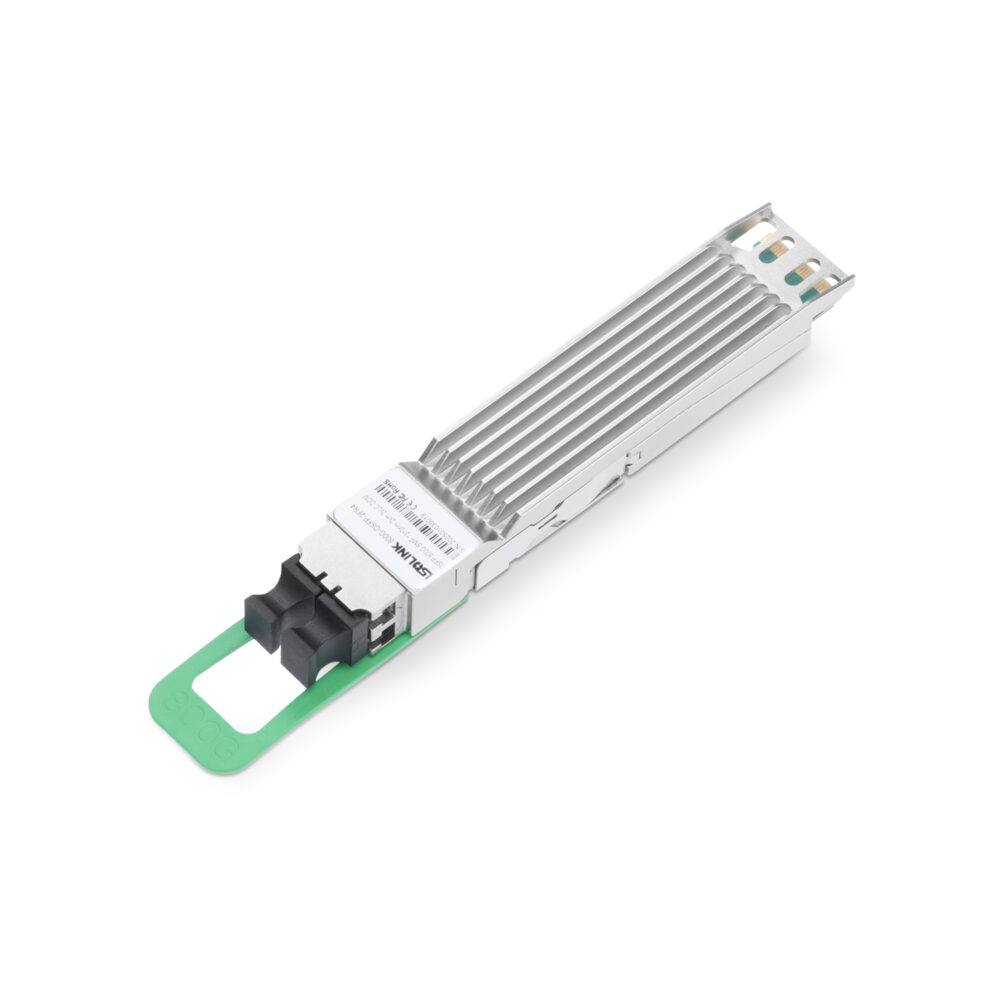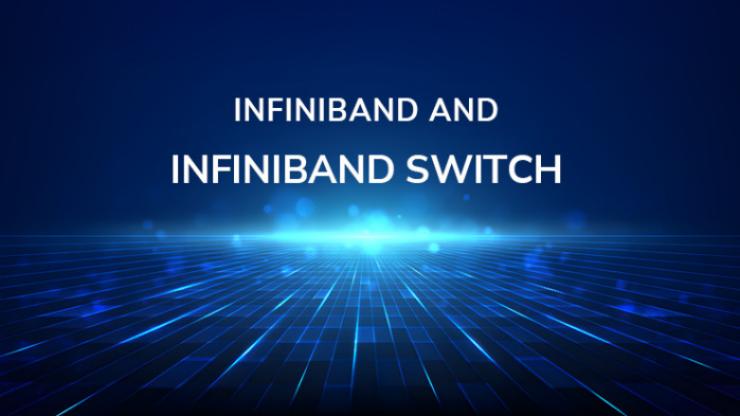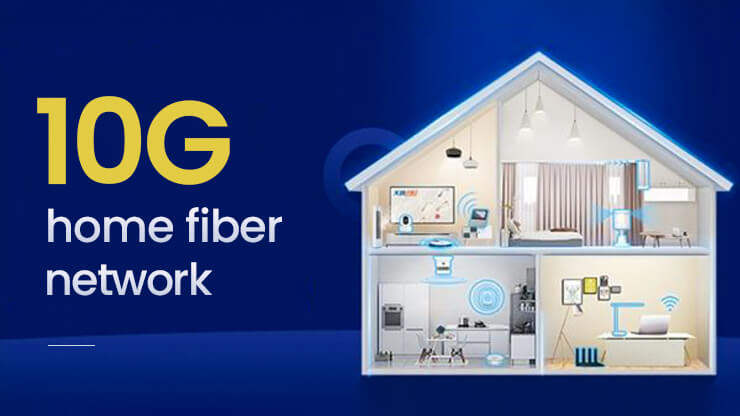800G OSFP
5 Results
Filter
5 Results
SKU: 800G-OSFP-2DR4
SKU: 800G-OSFP-2VR4
SKU: 800G-OSFP-2DR4+
SKU: 800G-OSFP-2FR4
800G Transceivers: QSFP-DD vs. OSFP
800G QSFP-DD (Quad Small Form-Factor Pluggable, Double Density)
The QSFP-DD form factor expands the traditional QSFP interface from 4 to 8 electrical lanes by incorporating a second row of contacts. Each lane supports 100Gbps in 800G applications, enabling a total bandwidth of 800Gbps. This architecture supports scalable deployments in data centers and offers flexibility through 25Gbps (NRZ) or 50Gbps (PAM4) per lane—enabling 200G or 400G aggregate links when needed.
Notable Benefits of 800G QSFP-DD Modules:
Backward Compatibility: Fully interoperable with QSFP+/QSFP28/QSFP56 modules, making network upgrades smoother.
Stacked Cage Design: Accommodates both single-height and double-height modules using a 2×1 stacked cage design.
High Thermal Capacity: Delivers up to 12W of power handling through SMT connectors and 1xN cages, improving thermal efficiency and cutting cooling costs.
Flexible Interface: Compatible with multiple speed interfaces, providing greater flexibility for deployment and reducing cost per port.
800G OSFP (Octal Small Form-Factor Pluggable)
Designed with eight electrical lanes at 100Gbps each, OSFP transceivers also deliver 800Gbps total throughput. Compared to QSFP-DD, OSFP is physically larger but includes integrated heat sinks for better thermal performance. It supports up to 32 ports on a 1U switch, making it ideal for ultra-high-density environments.
Key Advantages of 800G OSFP Modules:
High Bandwidth: Designed for full 800Gbps bandwidth, meeting high-capacity demands.
Strong Signal Performance: Offers longer transmission reach and consistent data integrity.
Enhanced Thermal Design: Built to handle higher power levels with efficient heat dissipation.
Future-Ready: The larger housing supports potential upgrades to 1.6T and beyond.
Comparison: QSFP-DD vs. OSFP
Form Factor: OSFP modules are slightly bulkier than QSFP-DD.
Power Usage: OSFP typically consumes more power.
Compatibility: QSFP-DD supports backward compatibility with legacy QSFP modules; OSFP does not.
Read More


